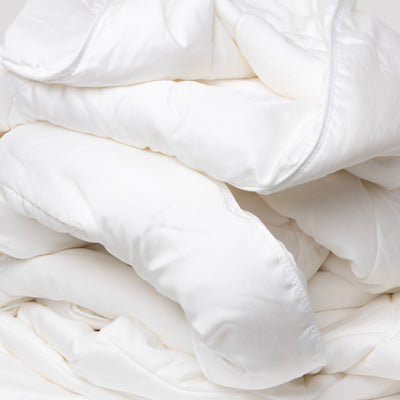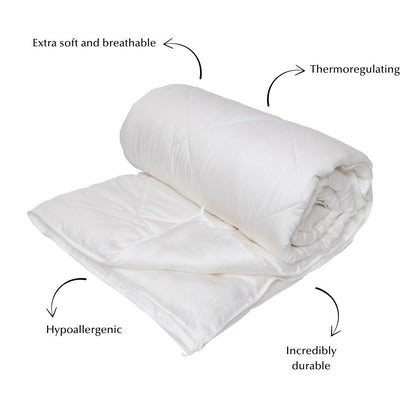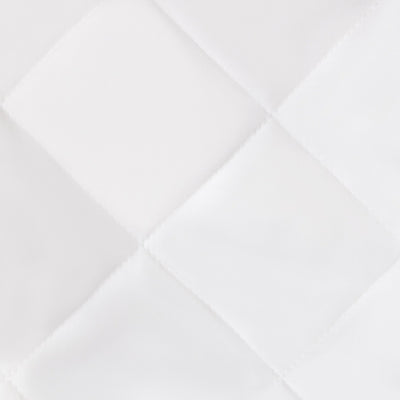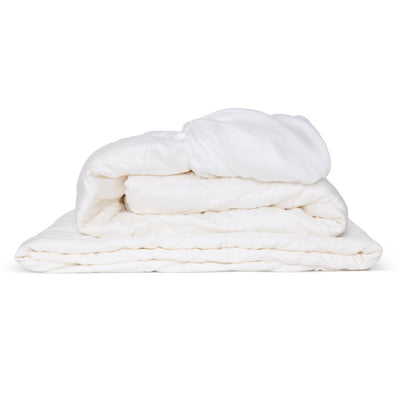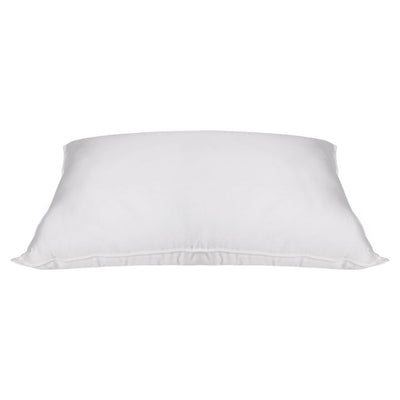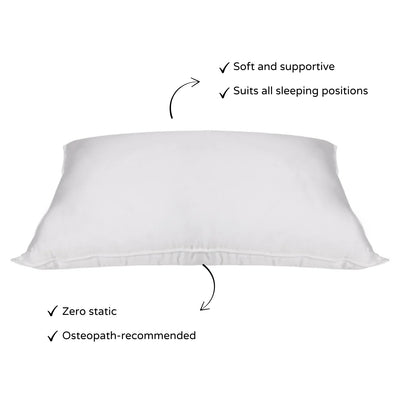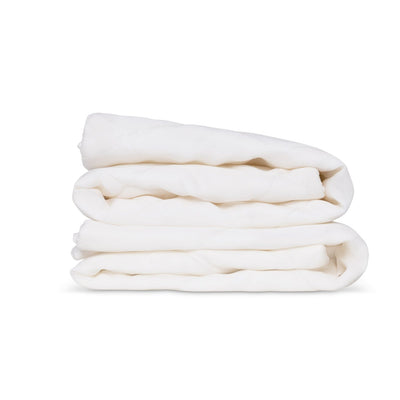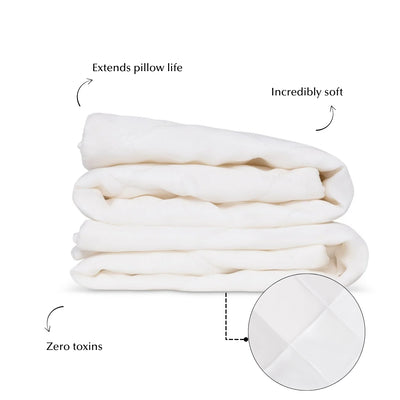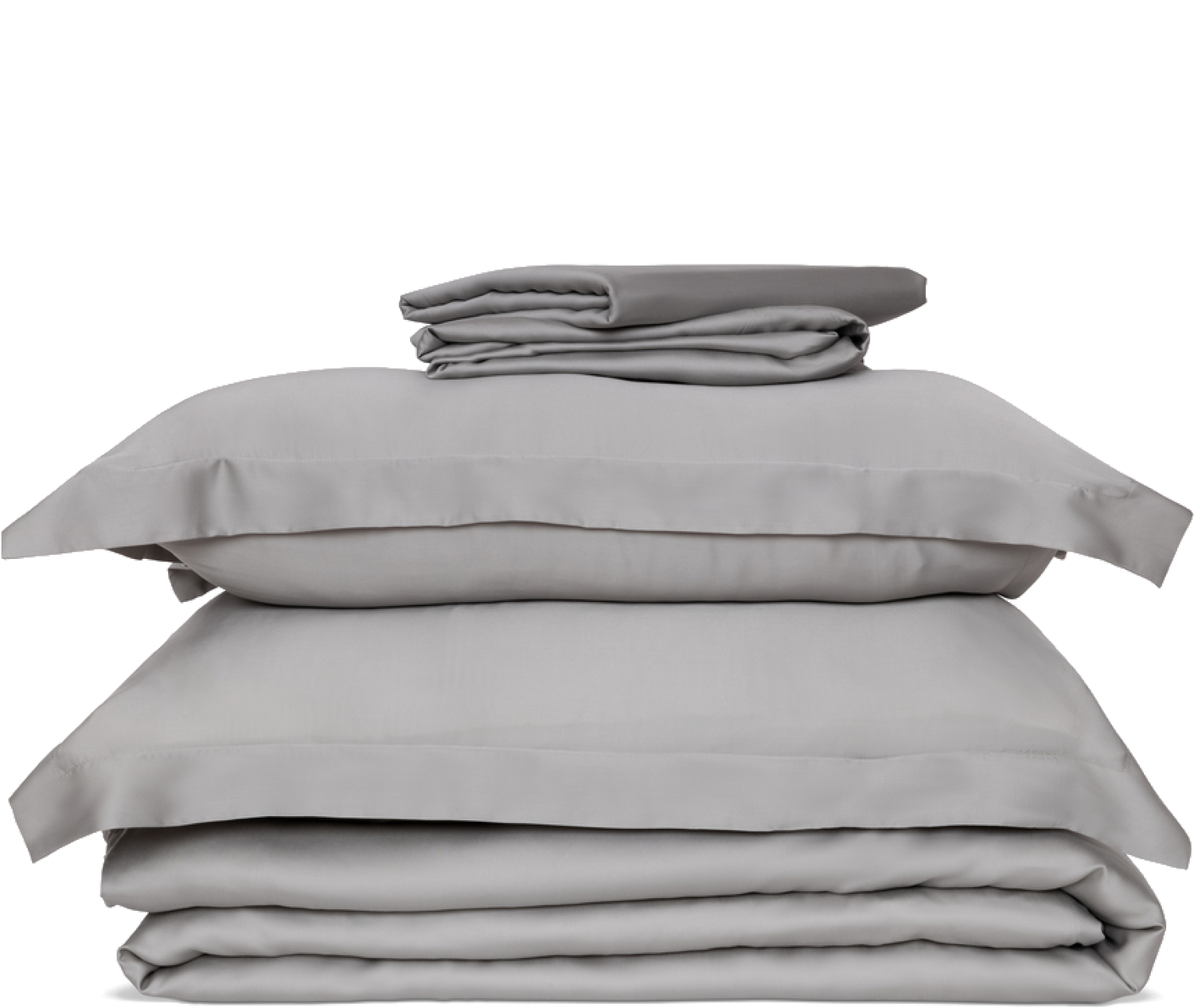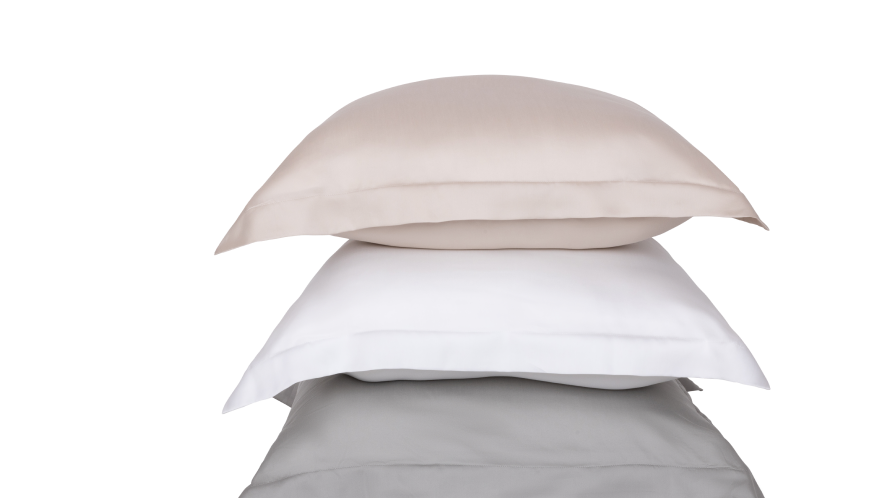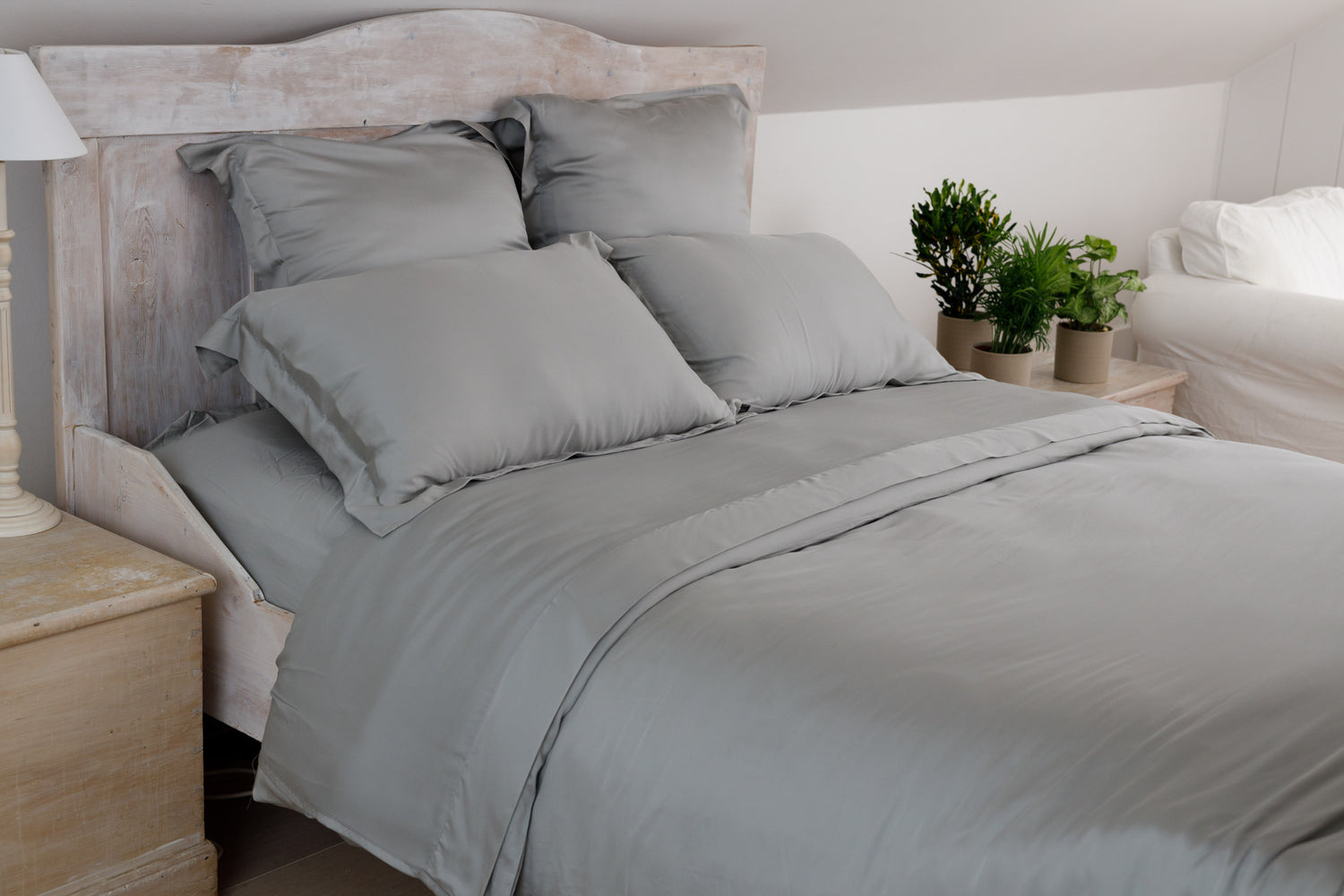When it comes to creating a sustainable lifestyle, we often focus on the big-ticket items - reducing plastic use, cutting our carbon footprint, and supporting eco-friendly brands.
But what if we told you that something as simple as the comforter on your bed could be having a significant impact on the environment? From the materials used to the production processes, traditional comforters can be surprisingly damaging to the planet. If you’re committed to making eco-conscious choices, it might be time to reconsider your bedding. Here's how traditional comforters may be harming the environment and why bamboo comforters are leading the charge toward sustainable sleep.
The Hidden Environmental Cost of Traditional Comforters
Most traditional comforters are filled with materials like down feathers or synthetic fibers, both of which have substantial environmental footprints. Down feathers, for example, are often harvested through live-plucking, which is harmful to geese and ducks. Furthermore, the mass production of these feathers involves unethical practices that many consumers aren't aware of. Synthetic fibers, like polyester, are made from petroleum-based plastics, contributing to plastic pollution and taking hundreds of years to decompose.
The fabrics used for comforter shells also pose environmental risks. Many are made from cotton, which, while natural, requires excessive water and pesticides during its cultivation. Conventional cotton farming uses vast amounts of water - up to 2,700 liters to produce a single t-shirt - and contributes to soil degradation and pollution due to chemical treatments.
Bamboo Comforters: A Sustainable Alternative
Bamboo comforters are a revolutionary alternative to traditional bedding, offering significant environmental benefits without sacrificing comfort. Bamboo is a fast-growing, renewable resource that requires minimal water and no harmful pesticides or fertilizers to thrive. Unlike cotton, which uses large amounts of water to cultivate, bamboo grows efficiently with about one-third of the water needed for cotton production.
Moreover, bamboo comforters use recycled fibers as filling, which helps reduce plastic waste. These recycled fibers are often derived from plastic bottles, turning waste into something useful and beautiful. Each bamboo comforter saves around 50 plastic bottles from landfills, making it a great choice for eco-conscious consumers.
The Advantages of Bamboo Over Down and Synthetic Fillings
While traditional down comforters might feel luxurious, they come with a host of ethical and environmental issues. As mentioned earlier, the process of collecting down feathers involves live-plucking, which is cruel to animals and harms the environment. Bamboo comforters, on the other hand, are cruelty-free and do not involve any harm to animals. Plus, bamboo’s natural antimicrobial properties ensure that your comforter stays fresh longer, reducing the need for chemical treatments often used in down or synthetic bedding.
Synthetic-filled comforters, while animal-free, are typically made from petroleum-based materials like polyester. These synthetic fibers contribute to the growing plastic problem and take centuries to break down in landfills. Bamboo comforters are biodegradable, unlike synthetic fibers, so they won’t contribute to plastic pollution when disposed of.
Sleep Cooler, Sleep Greener: The Cooling Benefits of Bamboo Comforters
One of the standout features of bamboo comforters is their ability to regulate body temperature. Traditional down comforters tend to trap heat, making them less than ideal for warm weather or for those who tend to sleep hot. Bamboo fabric, however, is breathable and moisture-wicking, keeping you cool and dry throughout the night. This makes bamboo comforters a great choice year-round, adapting to the changing seasons.
The cooling properties of bamboo are also enhanced by the eucalyptus-derived shell of the comforter, which is known for its ability to stay cool even in warmer climates. This means fewer nights of tossing and turning due to overheating, and more restful, uninterrupted sleep.
The Eco-Friendly Manufacturing Process of Bamboo Comforters
Bamboo comforters stand out not only because of their sustainable materials but also due to their ethical production processes. The bamboo used in these comforters is grown without the use of synthetic pesticides or fertilizers. Once harvested, the bamboo is processed in a closed-loop system, meaning that water and chemicals used in the process are recycled and reused, minimizing waste and pollution.
Additionally, the fibers in bamboo comforters are often made from recycled materials, such as plastic bottles. This helps to reduce landfill waste, turning unwanted plastic into a soft and cozy filling that you can sleep on.
Bamboo Comforters: A Long-Term Investment in Comfort and Sustainability
In addition to being environmentally friendly, bamboo comforters are built to last. Unlike traditional bedding, which can quickly degrade, fade, or lose shape, bamboo comforters maintain their softness and structure for years to come. They resist pilling, shrinking, and fading, meaning you won’t need to replace them as often. This long-lasting durability is not only more cost-effective but also reduces overall environmental waste.
The Environmental Benefits of Bamboo Comforters
Making the switch to bamboo comforters is a smart choice for both your sleep and the planet. Here are some of the key environmental benefits:
- Saves Plastic from Landfills: Each bamboo comforter helps save around 50 plastic bottles from ending up in landfills.
- Water-Efficient: Bamboo uses up to 80% less water than cotton crops, making it a far more water-efficient option for sustainable bedding.
- Biodegradable: Unlike synthetic comforters, bamboo is biodegradable, so it won’t contribute to the growing problem of microplastic pollution when it’s eventually discarded.
- Ethical and Cruelty-Free: Bamboo comforters are completely animal-free, avoiding the unethical practices associated with down bedding.
- Reduced Carbon Footprint: Bamboo absorbs carbon dioxide as it grows, helping offset carbon emissions and contributing to the fight against climate change.
Final Thoughts: The Future of Sustainable Sleep
Choosing bamboo comforters over traditional bedding is a simple yet powerful way to reduce your environmental footprint while enjoying a comfortable and luxurious night’s sleep. From their eco-friendly materials to their cruelty-free production processes, bamboo comforters are paving the way for a more sustainable and ethical approach to sleep.
By investing in a bamboo comforter, you’re not only making a positive choice for your health and comfort, but you’re also helping to reduce waste, conserve water, and protect the planet for future generations. Ready to sleep better and live greener? A bamboo comforter might just be the change you’ve been waiting for.
Discover our full collection of bamboo comforters here.

